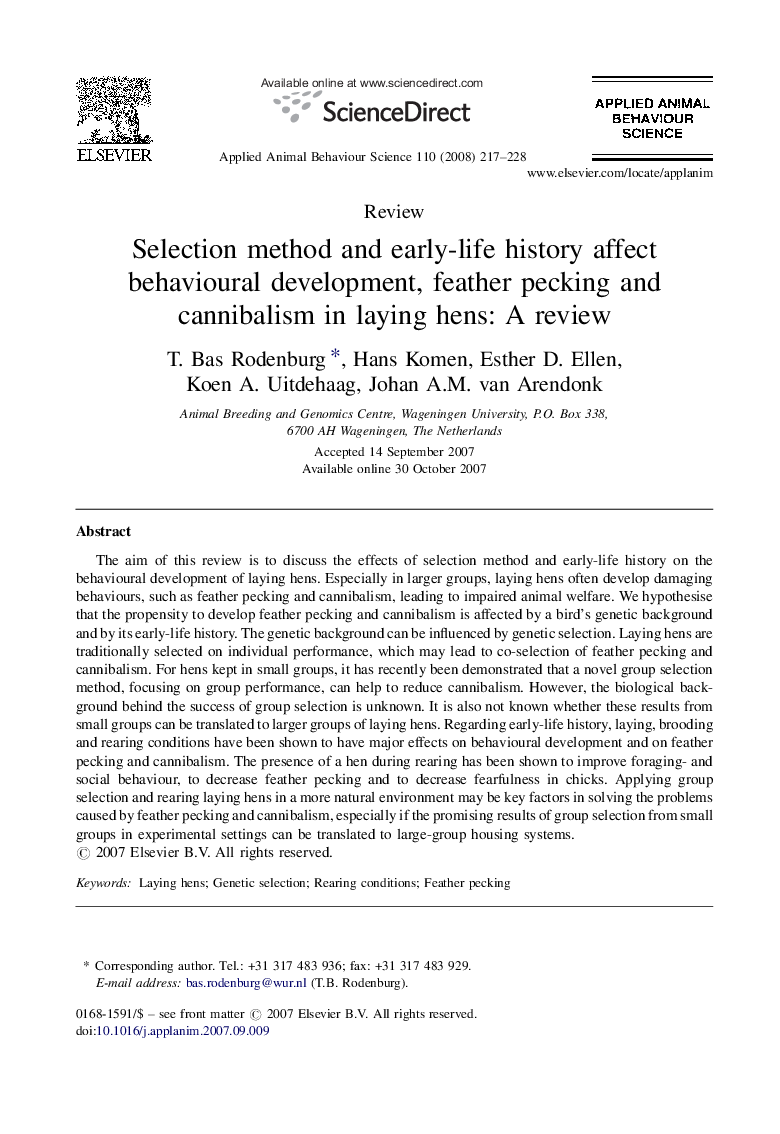| Article ID | Journal | Published Year | Pages | File Type |
|---|---|---|---|---|
| 4524058 | Applied Animal Behaviour Science | 2008 | 12 Pages |
The aim of this review is to discuss the effects of selection method and early-life history on the behavioural development of laying hens. Especially in larger groups, laying hens often develop damaging behaviours, such as feather pecking and cannibalism, leading to impaired animal welfare. We hypothesise that the propensity to develop feather pecking and cannibalism is affected by a bird's genetic background and by its early-life history. The genetic background can be influenced by genetic selection. Laying hens are traditionally selected on individual performance, which may lead to co-selection of feather pecking and cannibalism. For hens kept in small groups, it has recently been demonstrated that a novel group selection method, focusing on group performance, can help to reduce cannibalism. However, the biological background behind the success of group selection is unknown. It is also not known whether these results from small groups can be translated to larger groups of laying hens. Regarding early-life history, laying, brooding and rearing conditions have been shown to have major effects on behavioural development and on feather pecking and cannibalism. The presence of a hen during rearing has been shown to improve foraging- and social behaviour, to decrease feather pecking and to decrease fearfulness in chicks. Applying group selection and rearing laying hens in a more natural environment may be key factors in solving the problems caused by feather pecking and cannibalism, especially if the promising results of group selection from small groups in experimental settings can be translated to large-group housing systems.
